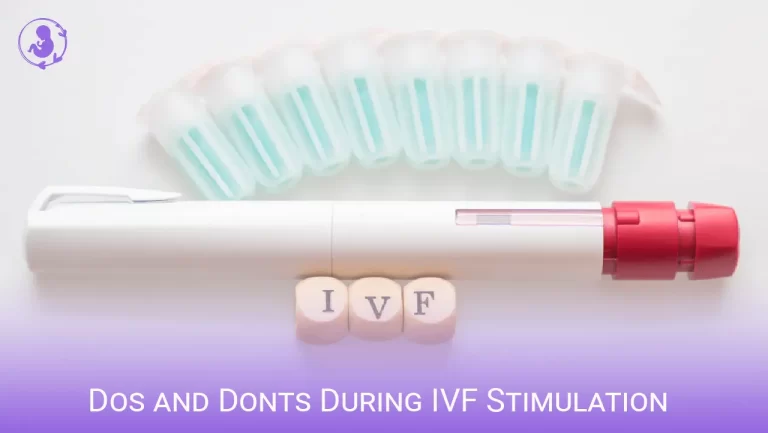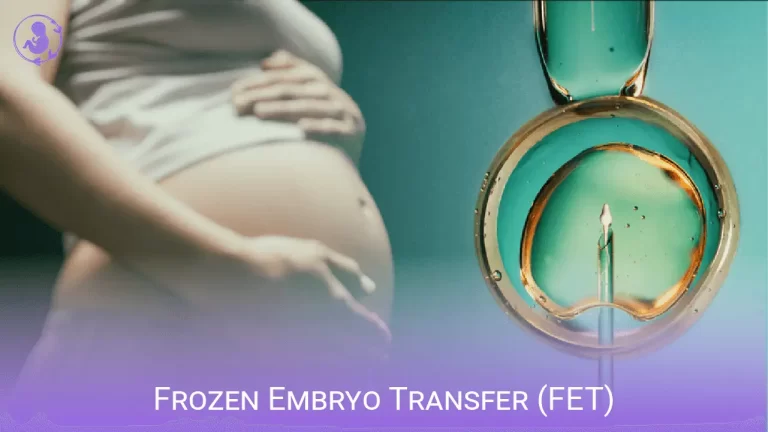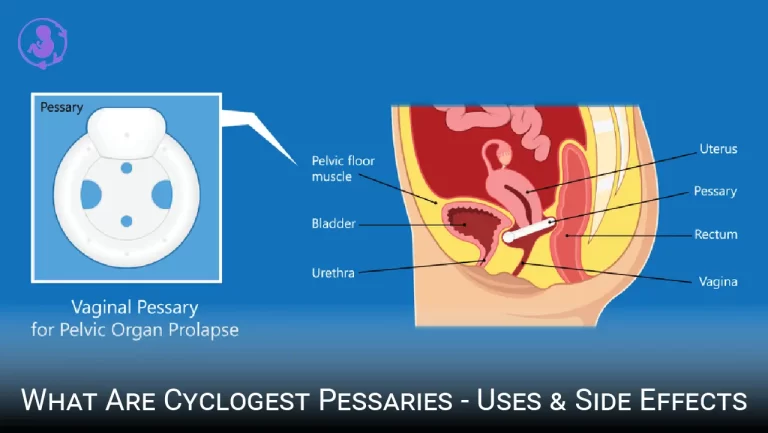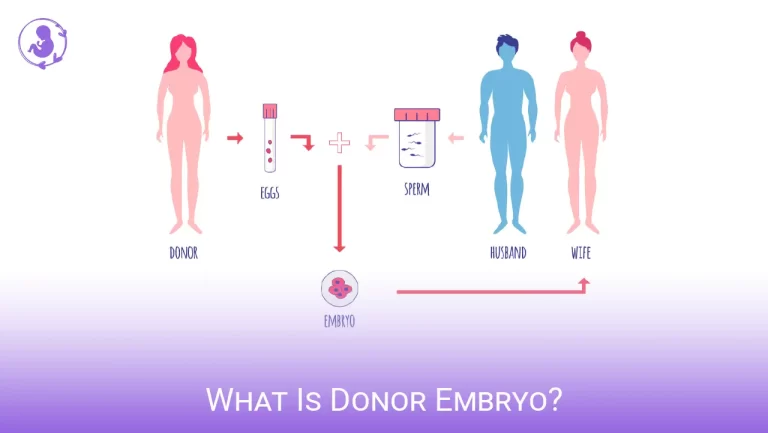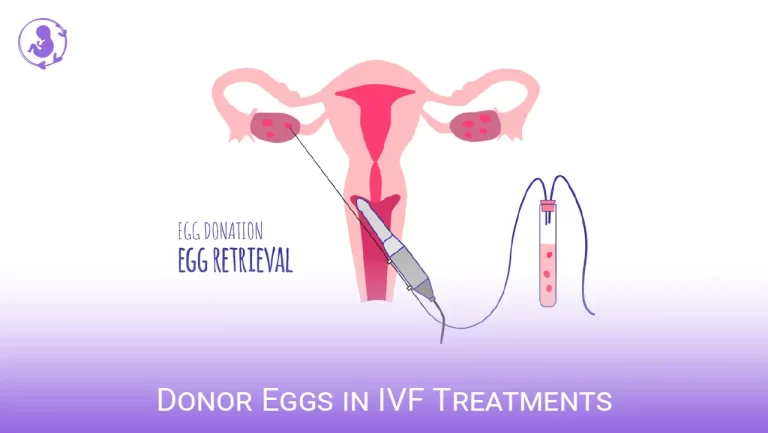What Is Neupogen IVF – Cost, Side Effects, Success Rate
Are you considering Neupogen IVF protocol for your fertility treatment? If so, this article will provide you with valuable information about its cost, potential side effects, success rate, and more.
Neupogen is a man-made form of granulocyte colony-stimulating factor (G-CSF) that can help improve fertility outcomes for patients with autoimmune challenges. By reducing inflammation, regulating the immune system, and increasing implantation rates, Neupogen has shown promising results in reducing recurrent pregnancy loss.
Keep reading to learn all about Neupogen IVF protocol and what it could mean for your fertility journey.
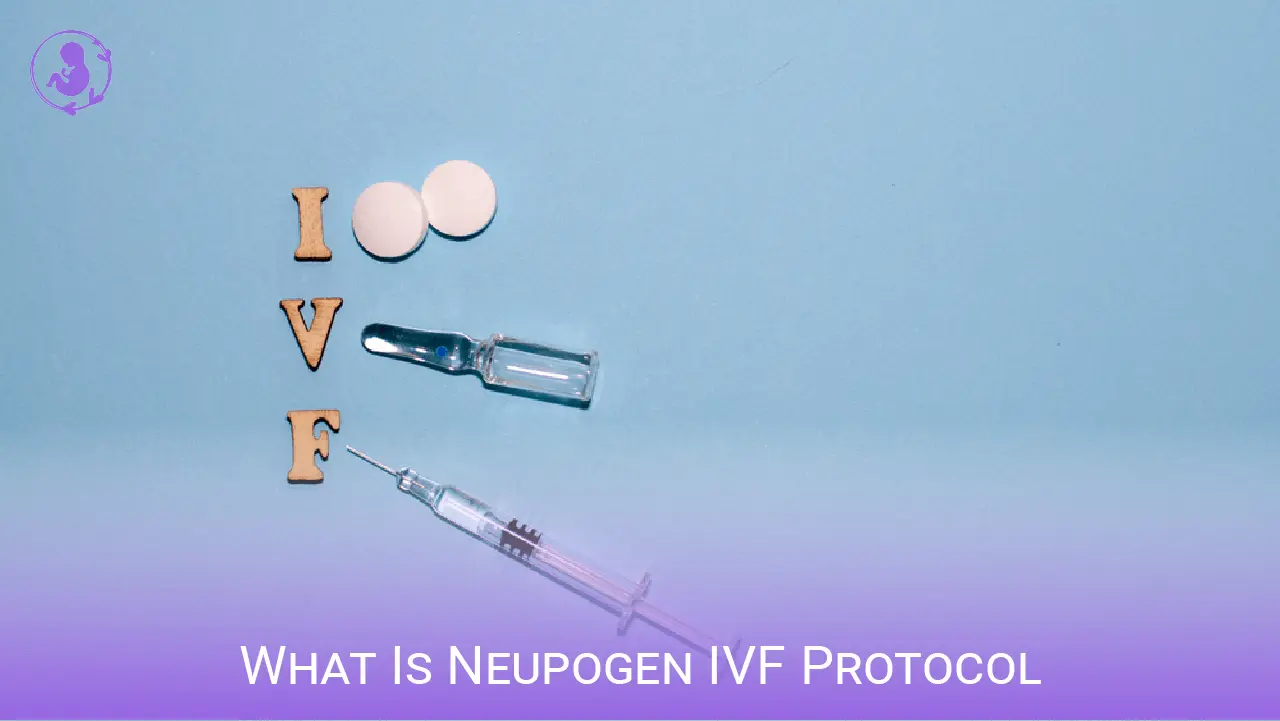
Neupogen IVF Protocol: Overview
If you’re considering the Neupogen IVF protocol, it is important to understand its overview and how it may potentially benefit your fertility treatment. Don’t forget to utilize our fantastic tool, the IVF Due Date Calculator, which will assist you in tracking your baby’s size. Now, let’s begin:
Neupogen, also known as Filgrastim, is a synthetic form of granulocyte colony-stimulating factor (G-CSF). It is commonly used in fertility treatment to address autoimmune challenges that can lead to recurrent IVF failure and implantation issues.
Neupogen works by stimulating the growth of neutrophils, a type of white blood cell, which helps regulate the immune system and reduce inflammation. By doing so, it improves implantation rates and decreases the chances of miscarriage.
Studies have shown that Neupogen can enhance the success of IVF treatments, particularly in patients with autoimmune challenges. It has been found to be effective in cases of recurrent implantation failure, where previous IVF attempts have been unsuccessful. Research suggests that Neupogen helps balance the immune response during pregnancy, increasing the chances of a successful pregnancy. However, it’s important to note that individual patient factors may influence the success rates of Neupogen IVF protocol.
This protocol usually involves administering the medication through subcutaneous injections. The dosage and duration of treatment will be determined by your fertility specialist based on your specific needs. Regular monitoring and adjustments may be made to ensure the best possible outcome. It is also common for Neupogen treatment to be combined with other fertility treatments to optimize results.
Overall, Neupogen is considered safe and well-tolerated by patients.
Understanding the Cost of Neupogen IVF
Understanding the expense can be crucial for patients considering this treatment option. Here are four key points to help you visualize the cost of Neupogen IVF:
- Randomized Trial: This protocol has been studied in a randomized trial. This means that patients were randomly assigned to receive either Neupogen or a placebo, ensuring unbiased results.
- Improved Implantation and Pregnancy Rates: The Neupogen protocol has shown promising results in improving implantation and pregnancy rates. This means that there is a higher chance of successful implantation and a higher chance of achieving a clinical pregnancy.
- Endometrial Thickness: Neupogen helps stimulate the growth of the endometrial lining, which is crucial for successful implantation. By improving endometrial thickness, Neupogen increases the chances of embryo implantation.
- Potential for Successful Implantation: The Neupogen protocol has been found to increase the chances of successful implantation. This means that more embryos have the potential to develop and grow, leading to a higher chance of a successful pregnancy.
By understanding these aspects of the Neupogen protocol, you can have a clearer picture of the potential costs and benefits associated with this treatment option.
It is important to discuss these findings with your reproductive specialist to determine if the Neupogen protocol is the right choice for you.
Potential Side Effects of Neupogen IVF
To fully consider the potential side effects of the Neupogen IVF protocol, it’s important for you to discuss this topic with your reproductive specialist and ask any questions you may have.
The Neupogen protocol is a treatment option that may be recommended for individuals experiencing repeated implantation failure or thin endometrium. While the protocol has shown promising results in improving pregnancy rates and live birth rates, it’s essential to be aware of the potential side effects.
Some common side effects of the Neupogen include injection site reactions, such as redness or swelling, and flu-like symptoms, such as fever or body aches. However, it’s important to note that not all individuals will experience these side effects, and they are typically temporary.
Your reproductive specialist will closely monitor your response to the protocol and make any necessary adjustments to ensure your safety and optimize your chances of success.
Additionally, it’s important to consider the cost of the Neupogen , as it may vary depending on factors such as location and individual treatment needs. Your reproductive specialist can provide you with more information regarding the cost and help you navigate any financial considerations associated with the protocol.
Success Rates of Neupogen IVF
The success rates of the Neupogen have shown promising results in improving pregnancy and live birth rates for individuals with repeated implantation failure or thin endometrium.
The Neupogen IVF protocol involves the use of Neupogen, a medication that stimulates the growth of white blood cells, to enhance the success of in vitro fertilization (IVF) treatments.
In a controlled trial, patients who received the Neupogen had significantly higher clinical pregnancy rates compared to those in the control group.
The protocol has been found to increase the success of embryo transfer and improve implantation rates in patients with thin endometrium.
The Neupogen IVF protocol offers hope for individuals who have experienced repeated IVF failures, as it has been shown to improve pregnancy rates and increase the chances of a successful live birth.
These findings highlight the potential of the Neupogen IVF protocol as a valuable intervention in improving IVF success for individuals with thin endometrium or repeated implantation failure.
Further research and studies are needed to validate these results and gain a better understanding of the mechanisms behind the positive effects of Neupogen in IVF treatment.
Key Considerations for Neupogen IVF Protocol
One important consideration for the Neupogen IVF protocol is the optimal dosage and duration of treatment. The dosage and duration of Neupogen treatment are determined by the fertility specialist based on individual patient factors and response. The goal is to achieve the best outcomes in terms of embryo implantation and pregnancy rates.
To help you visualize the considerations for the Neupogen IVF protocol, here is a table with 2 columns and 3 rows:
| Considerations | Description |
|---|---|
| Endometrial Cavity | Neupogen is administered through subcutaneous injections to improve the endometrial lining of the uterus, creating a favorable environment for embryo implantation. |
| Number of Gestational Cycles | Neupogen treatment may involve multiple cycles depending on the patient’s condition. Regular monitoring and adjustments are made based on the patient’s response to optimize the chances of success. |
| Quality Embryos | Neupogen enhances the success of IVF treatments by improving the quality of embryos. This increases the likelihood of successful implantation and pregnancy. |
Understanding these considerations and working closely with your fertility specialist will help determine the optimal Neupogen IVF protocol for your specific needs.
Exploring More About Neupogen IVF
If you’re considering the Neupogen IVF treatment, it’s important to understand the factors that contribute to its effectiveness and discuss them with your fertility specialist. Here are four key aspects to consider:
- Neupogen IVF Protocol: The Neupogen IVF protocol involves the administration of Neupogen, a man-made form of granulocyte colony-stimulating factor (G-CSF), through subcutaneous injections. The dosage and duration of treatment will be determined by your fertility specialist based on your individual needs.
- Cost and Side Effects: It’s essential to discuss the cost of the Neupogen IVF treatment with your fertility specialist, as it may vary based on your location and healthcare provider. Additionally, you should be aware of the potential side effects, which can include injection site reactions, headaches, and bone pain. Your fertility specialist can provide more detailed information about the potential risks and benefits.
- Success Rate: The success rate of the Neupogen IVF treatment can vary depending on various factors, including the specific fertility issues you’re facing. However, research has shown promising results, particularly in patients with repeated IVF failure and recurrent implantation failure. It’s important to have realistic expectations and discuss your chances of success with your fertility specialist.
- Pregnancy Rates and Randomized Controlled Trials: Randomized controlled trials have demonstrated improved pregnancy rates with Neupogen treatment. It has been found to enhance implantation rates and balance the immune response during pregnancy. However, it’s crucial to understand that individual success rates may vary, and more research is needed to fully understand the effectiveness of Neupogen IVF protocol.
Frequently Asked Questions
Conclusion
In conclusion, if you’re considering Neupogen IVF protocol for your fertility treatment, it’s important to understand the potential benefits and risks.
Neupogen has shown promising results in improving fertility outcomes, particularly for patients with autoimmune challenges and recurrent implantation failure.
However, it’s essential to consult with your fertility specialist to determine if Neupogen is the right option for you.
Additionally, be aware of the cost and potential side effects associated with this treatment.
Overall, Neupogen IVF protocol offers hope for individuals struggling with infertility, but individual success rates may vary.
Read More On IVF

